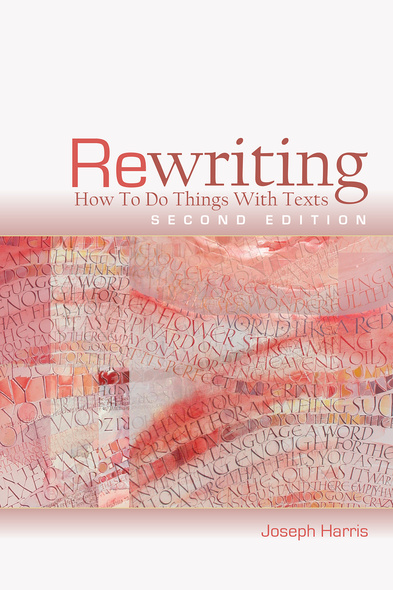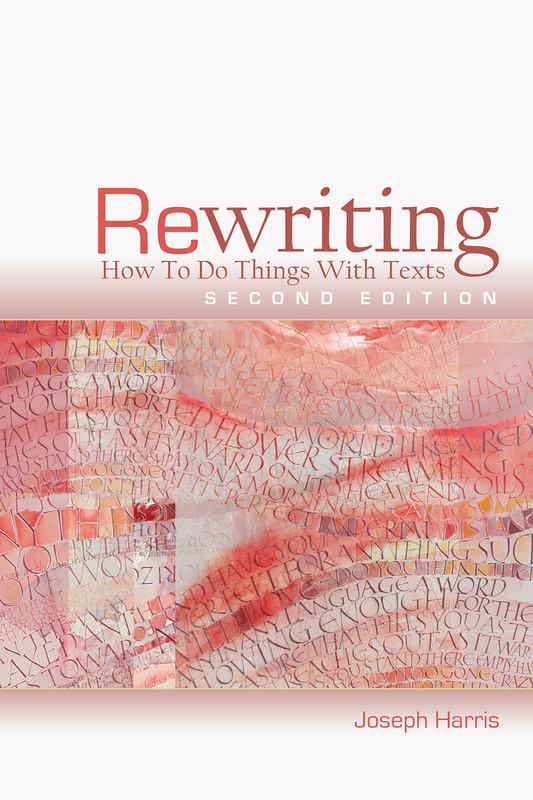“Like all writers, intellectuals need to say something new and say it well. But for intellectuals, unlike many other writers, what we have to say is bound up with the books we are reading . . . and the ideas of the people we are talking with.”
What are the moves that an academic writer makes? How does writing as an intellectual change the way we work from sources? In Rewriting, Joseph Harris draws the college writing student away from static ideas of thesis, support, and structure, and toward a more mature and dynamic understanding. Harris wants college writers to think of intellectual writing as an adaptive and social activity, and he offers them a clear set of strategies—a set of moves—for participating in it. The second edition introduces remixing as an additional signature move and is updated with new attention to digital writing, which both extends and rethinks the ideas of earlier chapters.
Praise for the first edition:‘In this wonderful little book, Joe Harris models the advice he gives. Rewriting is inviting, thoughtful, and packed with useful wisdom.’
—Mike Rose, author of An Open Language
‘Joseph Harris’s Rewriting has been taken up enthusiastically by thousands of teachers in the National Writing Project. Their students, from grades seven through twelve, have found Harris’s discussions of using other people’s texts in their writing to be accessible, useful, and immediately applicable to their writing. NWP’s large programs that focus on academic writing have put Rewriting at the center of their work.’
—Tom Fox, National Writing Project
‘While the book is aimed at undergraduates, [it] reads like a thoughtful primer on doing scholarly writing and, even more importantly, on forming a professional identity as a publishing scholar. . . . Harris provides the ‘terms of art,’ as it were, for writers to achieve that self-awareness.'
—Howard Tinberg, College Composition and Communication
‘I like this book. It has a pulse. And it fills a gap between bulky readers/rhetorics and dutiful style handbooks.’
—Tom Deans, University of Connecticut
‘Rewriting manages to model as it teaches. In striking this balance it’s an ideal book for graduate students searching for foothold in their first classrooms, whether they find themselves in the role of new teacher or struggling writer, or both.’
—Jessica Restaino, author of First Semester: Graduate Students, Teaching Writing, and the Challenge of Middle Ground
‘Writing this essay in response to Rewriting has given me a better sense of the moves I, myself, make. . . . I can think of no higher praise.’
—Donna Qualley, Reader, special issue on Rewriting
‘[O]ne of the reasons why I find the book so teachable and important is that it invites us to think more deeply than we might otherwise about what we want our writing to do and how we intend to make that happen.’
—Laura Micciche, College Composition and Communication
‘Harris models the working intellectual—not apologetic about his taste for books and thinking, happy to admit that these things are not so much glamorous or righteous as satisfying, hard, and do-able by anyone with an ambition to be interested and interesting.’
—Eli Goldblatt, Temple University





